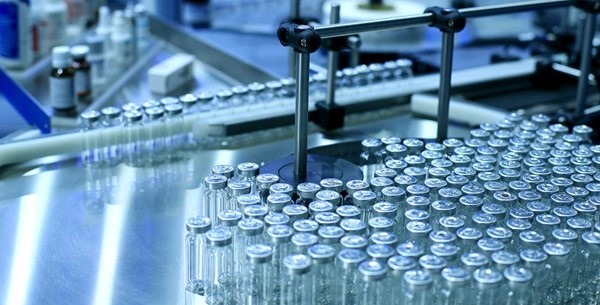With low-cost skilled manpower and a well-established manufacturing base, India has turned out to be the third biggest drugs manufacturer in the world. Thousands of large scale pharma companies have popped up, and the prices of medicines or drugs are kept at much lower levels than what prevail in other countries, especially the western ones; even though the quality is of world-class standards.
So, how are the pharmaceutical manufacturers in India able to produce drugs at such low prices, without compromising on the quality?
1. Generics
The global market for generic drugs is estimated to grow from $411.6 billion in 2020 to $650.3 billion by 2025, at a compound annual growth rate (CAGR) of 9.6% for the period of 2020-2025.
- India is currently the largest provider of generic drugs globally.
- India supplies about 40% of generic demand in the US and 25% of all medicine in the UK.
- Indian generic drugs account for 20% of global export in terms of volume, making the country the largest provider of generic medicines globally.
- In July 2021, Generic Health (an Australia-based subsidiary of Lupin Limited) signed an agreement with Southern Cross Pharma Pty Ltd. (SCP).
- In February 2021, Glenmark Pharmaceuticals Limited launched SUTIB, a generic version of Sunitinib oral capsules, for the treatment of kidney cancer in India.
- Product patents on medicines were not granted in India before 2005. Thus, Indian pharmaceutical manufacturers were able to produce low-cost generic versions of drugs that had patents from other countries.
- With the help of reverse engineering, India was the first one to bring affordable versions of the HIV drugs like Zidovudine, and life-saving cancer drugs like Imatinib; within a few years after their US launch.
- With numerous generic medicine manufacturers in India, there has been a price reduction of over 99%, for drugs across various therapeutic areas such as Tuberculosis, Malaria, HIV/AIDS, Hepatitis C and drugs for non-communicable diseases; which are critical aspects of public health programs.
- Currently, India is world’s leading source of affordable HIV medicines since it’s also among the few with the ability to quickly manufacture newer HIV medicines as generics.
2. APIs and Raw Materials
Indian pharmaceutical sector has added significant new capacity to the global supply of APIs and raw materials, making the global supply chain more resilient; thereby lessening the dependence on China, and also promoting the growth of India’s domestic drug companies.
3. Government Support
- Currently, more than 70% of FDI or Foreign Direct Investment is allowed in this sector.
- The Patent Act of 1970, related with the pharma sector of India is flexible and agile; which encourages easy business.
- Government has allocated two Production Linked Incentive Schemes to boost domestic manufacturing capacity, including high-value products across the global supply chain:
- PLI Scheme for Key Starting Materials (KSMs)/Drug Intermediates (DIs) and Active Pharmaceutical Ingredients (APIs) (PLI 1.0), and
- Production-Linked Incentive (PLI) Scheme for Pharmaceuticals d (PLI 2.0).
One is the PLI scheme gives financial incentives based on sales made by selected manufacturers for 41 products which covers around 53 APIs, and the incentive ranges from 5-20% based on the incremental scales. The other scheme about bulk drug parks and this scheme is primarily to provide easy access to world class common infrastructure.
It would not be wrong to say that the IT sector of India is also proving to be a supporting factor for the pharma franchise companies in India.
4. Vaccine Expertise
Apart from medicines, India is one of the biggest suppliers of low-cost vaccines to countries all over the world.
- It supplies over 50% of global demand for various vaccines.
- Already being considered as the pharmacy capital of the world and ‘medical superpower’, India developed and supplied bulks of medicines and vaccines to global health programmes such as PEPFAR, the Global Fund to Fight AIDS, Malaria and Tuberculosis and Gavi, apart from Covid-19 vaccines.
- As per data, India exported 5.84 crore doses of COVID vaccines to 70 countries as of March 2021.
5. FDA Approval
India is the country with the largest number of US Food and Drug Administration-compliant pharmaceutical plants which plays a key role in augmenting its pharmaceutical export efforts.
6. Advanced Tech in Pharma
Technological advancements are allowing healthcare providers to identify new therapeutic areas of treatment. Artificial Intelligence (AI) is helping the industry to come up with new and automated algorithms; to achieve quicker, precise and repeatable results. Drug discovery and molecular analysis, understanding difficult diseases, monitoring drug adherence, comprehending complex data and improving inclusion and exclusion criteria in clinical trials are other areas that also involve the use of AI.
7. R&D
Research on drugs or medicines for treating rare diseases and neglected diseases saw a steep ever since 2020. Several pharmaceutical companies are already assigning additional resources to create next-generation molecules, more research on gene therapy, stem cell therapy and biosimilars.



